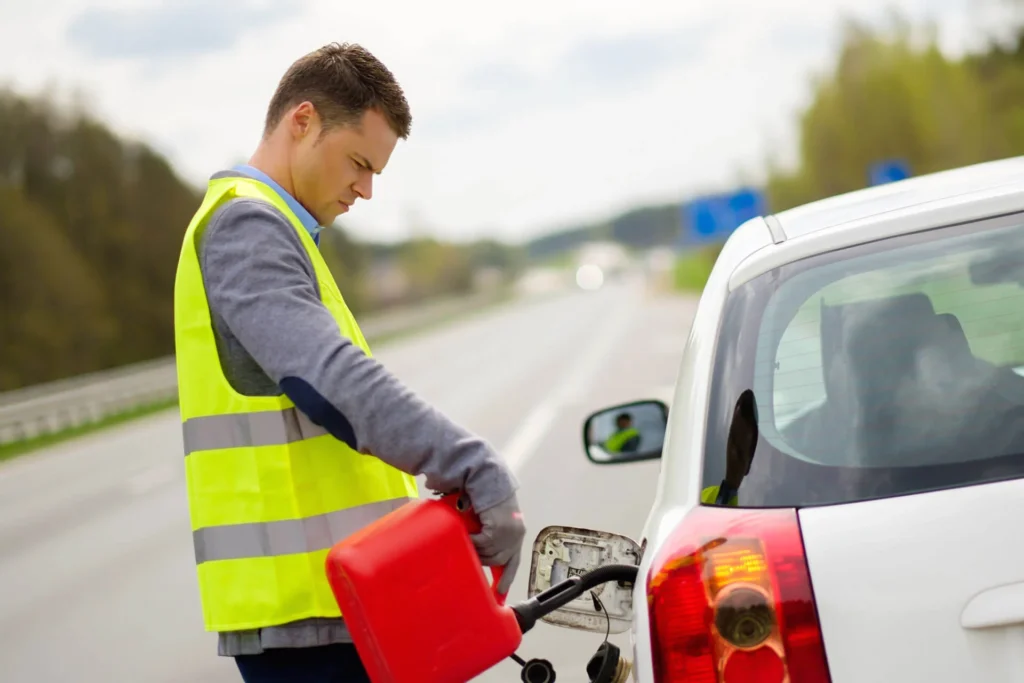Gasoline Delivery
Gasoline Delivery Services
Gasoline Delivery Services are specialized solutions that provide fuel delivery directly to vehicles, equipment, or storage tanks. These services are particularly useful for individuals and businesses who need a convenient and reliable way to refuel without visiting a gas station. They can be invaluable in emergency situations, for fleet management, or for areas with limited access to fueling stations. Here’s a detailed guide on gasoline delivery services, including how they work, benefits, types of services offered, and tips for choosing the right provider.

What Are Gasoline Delivery Services?
Gasoline delivery services involve the delivery of gasoline to a designated location, such as a vehicle, generator, or storage tank. These services are provided by specialized companies using equipped delivery trucks or vans that carry and dispense fuel. They cater to a variety of needs, from emergency refueling to routine deliveries for businesses or remote locations.
Types of Gasoline Delivery Services
a. Emergency Fuel Delivery
- Purpose: Provides fuel to stranded drivers who run out of gas and need immediate assistance.
- Features: Quick response times, typically available 24/7, and often includes a small amount of fuel to get the vehicle to a nearby gas station.
b. Fleet Fueling
- Purpose: Regular delivery of gasoline to businesses with vehicle fleets, such as delivery companies, construction firms, or municipal services.
- Features: Scheduled deliveries, bulk fuel supply, and often customized billing solutions for businesses.
c. Equipment and Generator Fueling
- Purpose: Supplies fuel for equipment and generators used in construction, agriculture, or events.
- Features: Regular or on-demand deliveries, ensuring that critical equipment remains operational without interruption.
d. Residential Fuel Delivery
- Purpose: Delivers gasoline directly to residential properties, often for use in home equipment or vehicles.
- Features: Scheduled deliveries or on-demand service, with options for larger storage tanks if needed.
How Gasoline Delivery Services Work
a. Request a Delivery
Contact a gasoline delivery service provider through their website, phone, or app. Provide details about the delivery location, type of fuel needed, and the quantity.
b. Confirm Details
Confirm the delivery time, address, and any specific instructions. Some services may require advance notice for scheduled deliveries.
c. Delivery and Dispensing
A delivery vehicle equipped with a fuel tank and dispensing equipment arrives at the designated location. The driver safely fills the vehicle’s tank or storage container using industry-standard procedures.
d. Payment and Documentation
Payment methods can vary, including credit cards, electronic transfers, or invoicing. You may receive a receipt or documentation confirming the delivery and the amount of fuel provided.
Benefits of Gasoline Delivery Services
- Convenience: Saves time and effort by eliminating the need to visit a gas station.
- Emergency Assistance: Provides quick refueling in case of emergencies, helping you avoid the inconvenience of running out of gas.
- Scheduled Deliveries: Ideal for businesses and individuals needing regular or bulk fuel deliveries, ensuring you never run low on fuel.
- Safety: Reduces the risk of handling and transporting fuel yourself, minimizing potential hazards.
- Efficient Fleet Management: For businesses, scheduled deliveries can streamline operations and reduce downtime for refueling.
When to Use Gasoline Delivery Services
- Emergency Situations: When your vehicle runs out of fuel and you need immediate assistance.
- Remote Locations: For properties or businesses located far from the nearest gas station.
- Fleet Management: For companies that need regular refueling for a fleet of vehicles or equipment.
- Special Events: When fuel is needed for generators or equipment used in events or temporary setups.
- Convenience: When you prefer not to visit a gas station regularly, especially for residential or equipment use.
Tips for Choosing the Right Gasoline Delivery Service
- Reputation and Reviews: Choose a provider with positive reviews and a good reputation for reliability and customer service.
- Availability: Ensure the service operates in your area and offers the delivery times that fit your needs.
- Safety and Compliance: Verify that the provider follows safety regulations and has the necessary certifications for handling and delivering fuel.
- Pricing and Transparency: Look for a service with clear pricing and no hidden fees. Compare costs and services to ensure you get the best value.
- Customer Service: Opt for a company that offers responsive and helpful customer support to address any issues or concerns.
Safety Considerations
- Proper Handling: Ensure that the delivery service follows safety protocols for handling and dispensing fuel.
- Storage and Ventilation: If you’re storing gasoline on-site, make sure it’s in a proper, well-ventilated, and secure location to prevent accidents or leaks.
- Emergency Procedures: Be aware of emergency procedures in case of fuel spills or accidents and communicate these to the delivery provider if necessary.
Common Questions About Gasoline Delivery Services
- How much does gasoline delivery cost? Costs vary based on distance, fuel quantity, and any additional services. Most companies provide quotes based on these factors.
- What types of fuel are available? In addition to gasoline, many providers also offer diesel and other types of fuel, depending on their service capabilities.
- Can I schedule regular deliveries? Yes, many services offer scheduled deliveries for regular refueling needs, especially for businesses or high-use equipment.
- What happens if there’s a problem with the delivery? Contact the service provider immediately to resolve any issues, such as incorrect fuel type, delivery errors, or payment discrepancies.
Environmental Impact and Regulations
- Spill Prevention: Professional services adhere to regulations and best practices to prevent fuel spills and leaks.
- Proper Disposal: Providers ensure that any waste or by-products are handled and disposed of in an environmentally responsible manner.
- Energy Efficiency: Opt for services that prioritize energy efficiency and reduce the environmental impact of fuel transportation.
Avoiding Common Mistakes
- Not Verifying Service Areas: Confirm that the provider serves your specific location before scheduling a delivery.
- Ignoring Safety Protocols: Ensure that the service follows all safety guidelines and regulations to avoid accidents or spills.
- Failing to Compare Prices: Compare quotes and services from multiple providers to ensure you’re getting a competitive rate.
Conclusion
Gasoline delivery services offer a convenient and efficient solution for refueling vehicles, equipment, and storage tanks without the need to visit a gas station. Whether for emergency situations, regular fleet management, or personal convenience, these services provide valuable support and save time. By choosing a reliable and reputable provider, you can ensure safe and timely fuel delivery tailored to your needs.
If you have more questions or need help finding a gasoline delivery service, feel free to ask!
